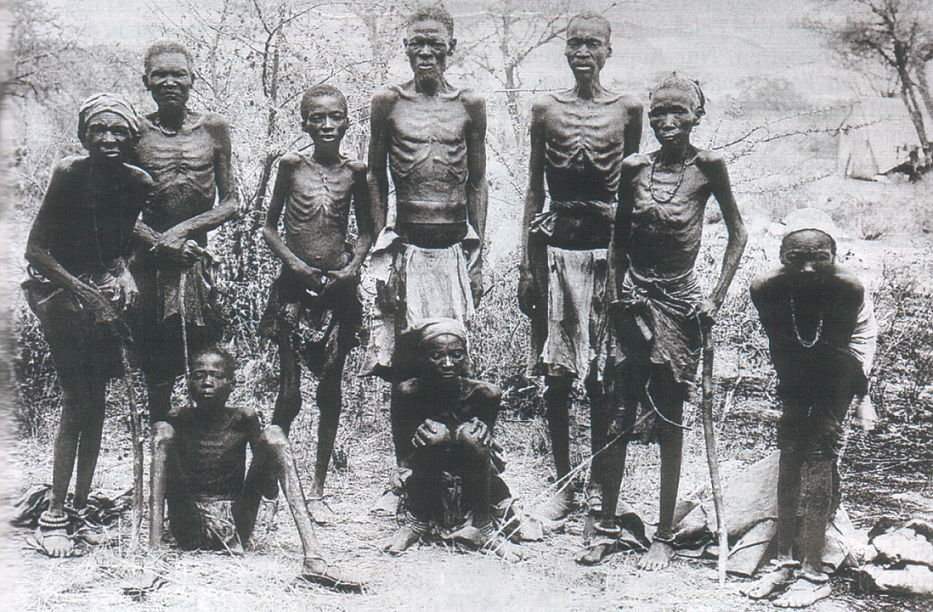Namibia’s government on Tuesday rejected an offer from Germany meant to settle the atrocities committed by German troops on Namibians between 1904 to 1908.
The slaughter of more than 100,000 people by the Germans took place when Namibia was a German colony known as South-West Africa.
The Herero and Nama ethnic groups in Namibia had rebelled against German rule in response to the expropriation of their land and cattle by Germany.
The head of the military administration in the region, Lothar von Trotha, ordered the massacre in response to the uprising.
The indigenous Herero and Nama people had to flee their lands. Those killed were people found trying to return to their expropriated lands.
According to many published reports, victims were subjected to harsh conditions in concentration camps, and some had their skulls sent to Germany for scientific experiments.
First Genocide of 20th century
That incident was considered by some historians as the 20th century’s first genocide, and a 1985 United Nations report said the “massacre” of Hereros qualified as a genocide.
Some 75% of the Herero population and half of the Nama population died in that massacre.
In June this year Germany agreed to apologize in principle but is yet to formally do so.
Official negotiations between the Germans and Namibia have been going on for the past five years.
On Tuesday, the Namibian government provided details of why it has rejected the reparation offer from German.
President Hage Geingob described the offer as “not acceptable” as the Germans prefer to use the “healing the wounds” instead of “reparations” during negotiations.
The President made those revelations after he was briefed about the negotiations by the Namibian negotiating team led by special envoy Zed Ngavirue.
Today, I received a briefing from Amb. Zed Ngavirue on negotiations with Germany about Genocide, Apology and Reparations. Diplomacy is about compromise and I commend Amb. Ngavirue on progress regarding the task assigned to him. We remain resolute in completing this key mission. pic.twitter.com/UZzxsjsr8u
— Hage G. Geingob (@hagegeingob) August 11, 2020
Why the rejection
In a statement the Namibian government said while it “agreed to negotiate the issue of redress (reparations), which the German Government consistently referred to as “healing the wounds”, Germany has declined to accept the term “reparations”.
Germany refused to use the term “reparations” in negotiations with the Jews and the State of Israel in their agreement signed at Luxemburg in 1952 and wants to use adopt same approach with Namibia.
Namibia said it “found the terminology “healing the wounds” inadequate, and that demand is currently discussed under the rubric of “Reconciliation and Reconstruction Programme”.
The terminology, “Reconciliation and Reconstruction Programme” will be submitted for debate and approval to the Special Political Cabinet Committee on Genocide, Apology and Reparations, Chaired by the Vice President, H.E Nangolo Mbumba, and eventually to the Head of State, H.E Hage G. Geingob for final approval.”
The statement added that “The current offer for reparations made by the German Government remains an outstanding issue and is not acceptable to the Namibian Government.”
Return of skulls of victims
In 2018, skulls of of people murdered during the genocide finally arrived home.
A ceremony was performed in Berlin at a church service to hand over the remains at the time.
The remains are were brought to Namibia by a delegation with a local ceremony conducted in Namibia for the remains.
Namibia had accused Berlin of taking too long to formally apologize for massacre.
Source: Africafeeds.com


